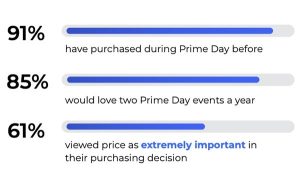Managers are responsible for maximizing the performance of the people on their team. It seems such a simple and obvious observation, but one that doesn’t seem to be executed.
Many managers struggle with understanding this, some retort, “My job is to make the numbers!” But when I ask, “How do you do that,” they start stammering and waving their arms. While it would seem obvious that the only way they can make their numbers is through maximizing the performance of people on their team, the conversations are often long an circuitous in getting there.
Some managers interpret this differently. “In my organization, it’s sink or swim. We toss people into the deep end, if they don’t perform, we get rid of them!” These people think they have a performance orientation, but they really don’t. They don’t address the issues that underlie performance in the first place. Instead they have an organizations dominated by fear. Top performers seldom choose to work in these organizations, because managers aren’t interested in growing their people.
What does it mean to develop a high-performance team?
Just a few thoughts:
1. You have to start with the right talent. Too often, we settle for the people we get, not the people we want/need. A lot of this is the result of not understanding and developing rich competency models and profiles to make sure we are getting the right people with the right behaviors/attitudes/skills/competencies/experiences to perform at the highest levels.
2. Setting high expectations of performance, making sure each person understands the expectations. Too often, our definition of performance is very limited or poorly defined. We think of it as “just make the numbers…..” But this insufficient, our sales people represent our companies to customers. How do we want our companies presented, what do we want to stand for, what customer experience do we want to create, how do we work with each other internally, what are our values, what is our culture? These provide the context and framework for driving great performance in an organization, yet too often we spend too little time understanding these and setting expectations within our teams.
3. Provide the systems, tools, processes, programs, training, to help people achieve success. But make sure both you and they see these as complements or aids to their effectiveness and that they don’t become the central issue. Stated differently, you won’t win because you have CRM, but effectively leveraging CRM helps improve your effectiveness and impact, causing you to win more.
4. Coach, coach, coach—but don’t overwhelm them. By now, if you are a regular reader, or at least have been paying attention to what’s happening in sales, you know that coaching is important–critical. But effective coaching isn’t about trying to address everything at once. Identify the single most important issue each individual has to address to improve performance. Focus on improving that capability, once they’ve mastered it, then move to the next, then the next.
5. Be committed to the success of each person on the team. Your mindset about your people is critical. If you aren’t committed to helping them achieve the highest levels of success, if you don’t believe they have the potential to be successful, they will never achieve what they could. Ironically, that is less their problem and more yours–driven by the wrong mindset.
6. Realize that you have to set and model what great performance looks like. Setting a great example, doesn’t mean you become “super sales person,” but rather that you are demonstrating the behaviors, attitudes, values, mindset critical to success, that you are actively engaged in supporting them in the field with customers.
7. Fight for your people internally, get them the things they need to be successful, protect them from the organization and the complexity that seems to over whelm them. Make sure they are recognized for their great performance, work privately on performance challenges.
8. Realize that top performance is a choice–yours and each person on the team. Each of you have to choose to be top performers and commit to doing the things that enable each person, including you, to be a top performer.
I could go on, but I’ll stop here. What have I missed?
Business & Finance Articles on Business 2 Community(27)







